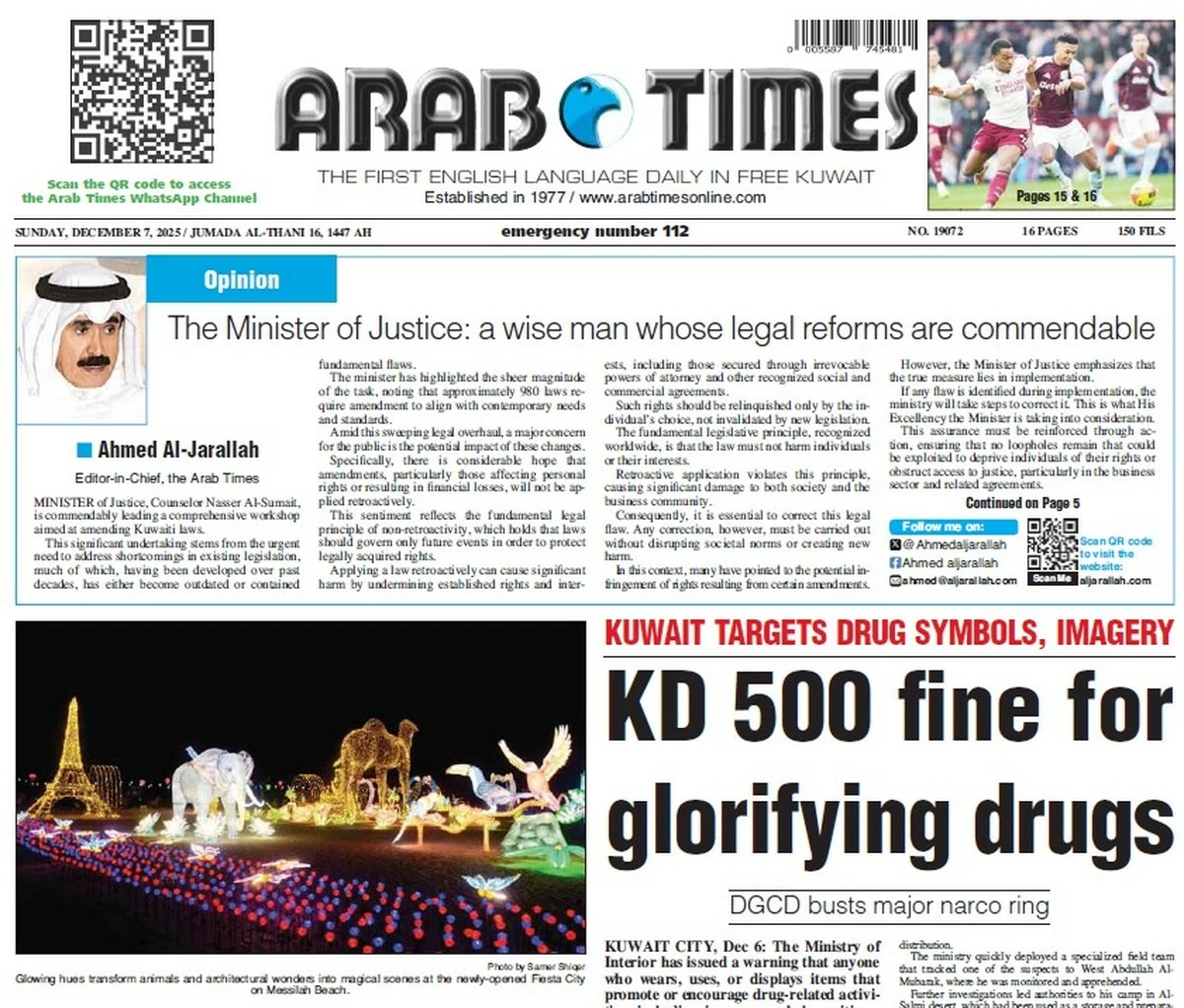KUWAIT CITY, Oct 9: The Directorate General of Civil Aviation (DGCA) announced the opening of several vital projects at Kuwait International Airport. Deputy Director General for Planning and Projects at DGCA Saad Al- Otaibi revealed that the directorate is currently preparing for the opening of the third runway and the new air traffic control tower at the airport on Oct 30. In a televised statement, Al-Otaibi expressed his deep gratitude and appreciation to all parties that contributed to the completion of this vital project, considering it is a qualitative shift in the history of the Kuwaiti air transport sector. He explained that the third runway is one of the most important development projects in the infrastructure of the airport, indicating it is 4.4 kilometers long, and it is regarded as one of the best runways in the world in terms of design and technical standards.
He pointed out that the completion of this project is the result of continuous efforts for four years. “These efforts culminate in the official opening of the runway at the end of this month. It will greatly contribute to the safety and security of landing and takeoff traffic, including the development of the operational capacity of the airport,” he added. He said the new control tower, which will be inaugurated simultaneously with the third runway, is an integral part of the comprehensive development of the airport infrastructure. “It is equipped with the latest air navigation systems and globally approved air monitoring technologies to guarantee safety and air navigation standards, while enabling efficient air traffic management for jumbo jets, cargo, passenger and private aircraft,” he elaborated. He added that these projects will improve operational efficiency and increase the capacity of the airport.
He expects the control tower to handle more than 600,000 takeoffs and landings annually, which will result in increased revenues and stimulate economic activity related to air transport. He stated that the DGCA has an integrated strategy based on these main objectives -- improving services provided to passengers through infrastructure development and increasing revenues for the State through partnerships with the private sector, given that modern airports have become major investment and economic platforms, not merely gateways for travel. According to Al-Otaibi, the strategy includes developing and qualifying nationals through training programs in the fields of air navigation, ground operations and technical services, in addition to enhancing the operational efficiency and coordinating with entities operating at the airport, such as airlines, ground service providers and relevant government agencies.
By Mohammad Al-Enezi Al-Seyasah/Arab Times Staff



